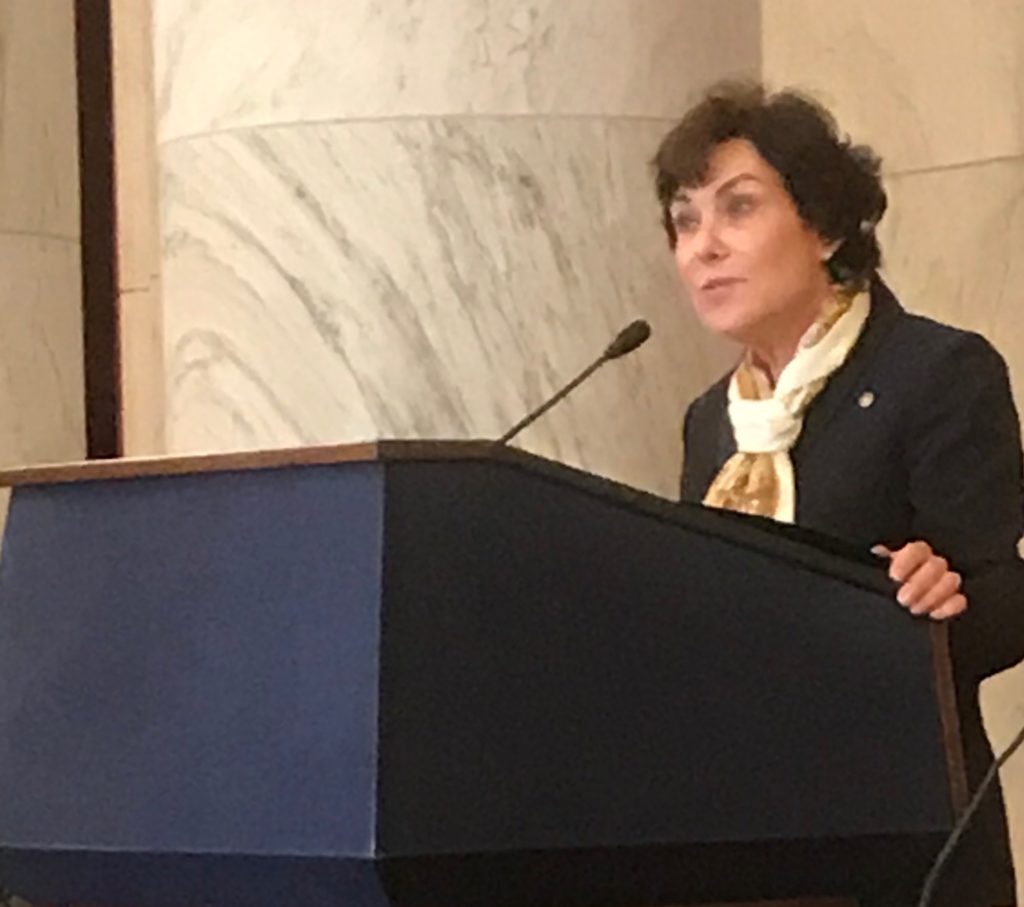U.S. Sen. Jacky Rosen (D-Nev.) and Lisa Murkowski (R-Alaska.) have re-introduced a bill designed to bolster the palliative care workforce. The Provider Training in Palliative Care Act would clear the way for members of the National Health Service Corps to defer their service for as long as one year to pursue additional training in palliative care.
Established in 1972, the National Health Service Corps program offers scholarships and loan repayment to primary care providers in eligible disciplines. The Health Resources and Services Administration (HRSA) manages the initiative. Rosen and Murkowski, both members of the Senate Committee on Health, Education, Labor and Pensions, initially introduced the bill in 2019.
“Palliative care helps provide comfort, manage pain and improve overall quality of life, yet providers are in short supply in Nevada and across the country,” Rosen said. “This important legislation will help fill health care gaps in Nevada caused by our doctor shortage by offering primary care providers a chance to receive training in palliative care so that they can better meet patient needs in underserved communities.”
Before entering Congress, Rosen was a caregiver to aging members of her family, including her mother. In 2019, she spearheaded the establishment of the bipartisan Comprehensive Care Caucus.The mission of the caucus is to raise awareness of palliative care, promote utilization, improve care coordination, support caregivers and expand access to palliative care services.
Workforce shortages have been keeping hospice leaders awake at night for several years running. Rising turnover due to the COVID-19 pandemic has exacerbated the crisis, and some hospice providers and health systems are starting to shut down their programs or sell off their operations because they cannot recruit or retain a sufficient number of employees.
Rising turnover has increasingly plagued the industry since the COVID-19 outbreak began last year. Slightly more than 20% of health care workers have considered leaving the field due to stress brought on by the pandemic, and 30% have considered reducing their hours, according to a recent study published in JAMA Network Open.
“We need creative solutions to expand training opportunities in the kind of holistic, person-and-family centered services that palliative care can provide,” Bill Dombi, President of the National Association for Homecare and Hospice said. “By making it easier for National Health Service Corp providers to pursue palliative care education, the bill would increase access to this much-needed care in some of the country’s most underserved communities.”
The shortage has been building for years as hospice employees age with the rest of the population and seek retirement. About 10,000 people in the United States reach the retirement age of 65 every day, according to the Kaiser Family Foundation.
Compounding providers’ recruitment and retention problems is the general lack of exposure to hospice or palliative care during clinical training. A 2018 study concluded that most students in clinical disciplines do not feel prepared to provide family care at the end of life.
“This legislation opens the door to primary care providers who want to train in palliative care, increasing the number of people trained in underserved areas all while ensuring the definition of primary care doesn’t change,” Murkowsi said.
Shortages are expected to worsen during the next 25 years, with research indicating that supply of a hospice and palliative care specialized workforce will be exceeded by demand of a growing aging patient population.
The country’s supply of hospice and palliative care specialists numbers at 13.35 for every 100,000 adults 65 and older, according to an April 2018 study. The research projected that by 2040 patients in need of this care will range between 8,100 and 19,000, while supply of specialists will tip between roughly 10,640 and 24,000 specialists. Hospices also continue to see shortages in other disciplines, such as nurses, case managers and direct care workers.
“Given the ongoing implications of the COVID-19 pandemic and the exacerbated workforce shortages impacting the not-for-profit hospice and palliative care provider community, this legislation is imperative,” Tom Koutsoumpas, CEO of National Partnership for Hospice Innovation said.
Other legislative initiatives to address this issue are in the works, including the Palliative Care and Hospice Education and Training Act (PCHETA). Sen. Tammy Baldwin (D-Wis.) and Rep. Yvette Clarke (D-N.Y.) recently called on congressional leaders to pass PCHETA, which would support physician and nurse training, among other disciplines.
“This projected workforce shortage is a stark reminder that along with our aging population comes the need to revisit Medicare policies and address how we will meet the growing demand for person-centered care,” said National Hospice & Palliative Care Organization President and CEO Edo Banach said regarding PCHETA.
Companies featured in this article:
National Association for Home Care and Hospice, National Hospice and Palliative Care Organization, National Partnership for Hospice Innovation



